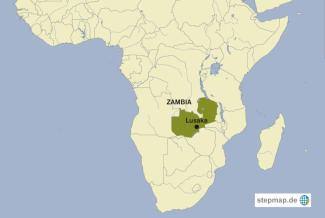Water
Boreholes to nowhere

As surface water is depleted by drought, groundwater reached by boreholes has become the main water source for 38 % of Zimbabweans, says the Ministry of Environment, Water and Climate Change. Harare, the capital city, is especially dependent on boreholes. Here, about 80 % of the people depend on groundwater, using some 28,000 registered boreholes.
Now, however, the boreholes are starting to run dry. “Groundwater is running out due to over-usage by urban dwellers drilling boreholes,” says Happison Chikova, executive director of Help Initiatives for People, a humanitarian organisation.
Groundwater has been a dwindling resource in Zimbabwe for years, yet the drilling has continued as if the supply were plentiful.
Nearly a decade ago, in 2013, a scientific study at Great Zimbabwe University signalled the problem. “Groundwater levels in most parts of Zimbabwe’s catchments are in a state of decline,” warned the report, titled Groundwater resources of Zimbabwe: An assessment of fluctuations. “Most of the catchments have average groundwater levels marginally above their long term means, except for the Zambezi Valley, which now shows a negative long-term trend.”
The report’s author, David Chikodzi, predicted that the decline in groundwater will hurt economic development in the affected areas, since groundwater resources supply household needs and reduce poverty through irrigation. Reliance on groundwater is likely to increase as rainfall becomes more unpredictable and as growing populations demand more water, Chikodzi said.
That prediction is coming true – and yet nothing seems to change in the policies allowing the unlimited tapping of groundwater.
In Mabvuku, a high-density suburb east of Harare, 67-year-old widow Mirirai Saburi is running out of patience. She told visiting reporters that the time for talking is past: “What good is it to keep telling you about the trouble we have had for years, when your reporting is not ending the water crisis?”
Indeed, in the face of dwindling supplies of water from all sources, more and more people want to dig boreholes to search for groundwater. Entrepreneurs are gladly stepping in to help them.
One of them is Harare-based Hector Muwaniri. After only five years in the groundwater harvesting business, he has made enough money to buy several properties in the capital city.
“Rationing of city-supplied water is widespread, and this has given me a chance to grow my borehole drilling business,” Muwaniri says. “Everyone wants water in their home.”
Jeffrey Moyo is a journalist living in Harare.
moyojeffrey@gmail.com








